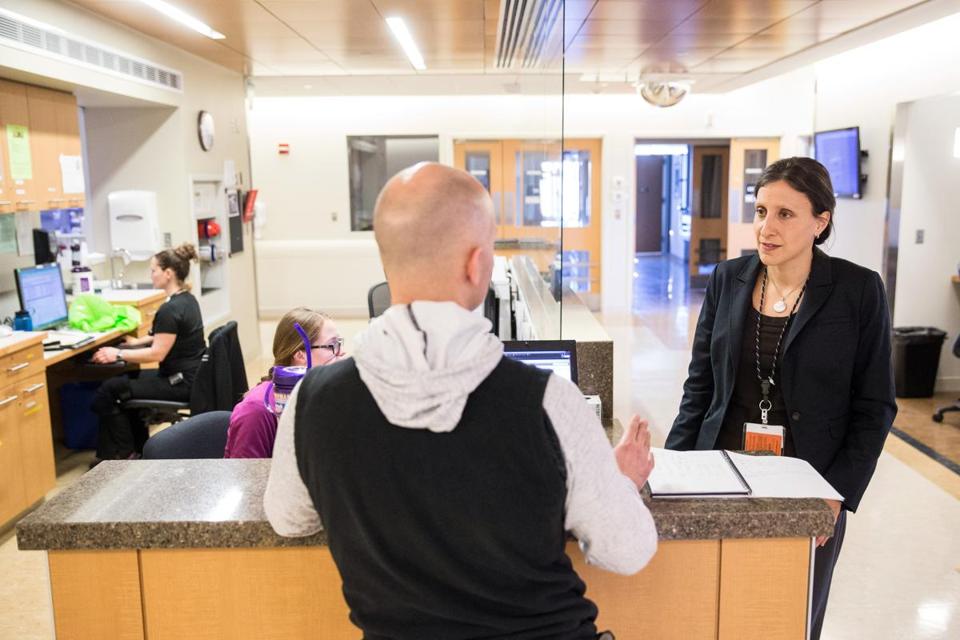The ministry of clinical chaplain brings spiritual healing to hospital patients and those who care for them.
Think of a chaplain, and — if you’re of a certain age —the quirky character of Father Mulcahy from the TV series M*A*S*H might come to mind. Chaplain Alyssa Adreani of Newton-Wellesley Hospital, as a female multi-faith cleric, laughs at that outdated image. As Adreani, 41, likes to point out, isn’t hanging out in the Newton hospital’s chapel and doesn’t wear a collar or a cross. She makes the rounds of the neonatal intensive care unit, oncology, ICU, orthopedics, and medical/surgical units, following her personal Golden Rule of chaplaincy: “Wear comfortable shoes.” The Globe spoke with Adreani about how hospital chaplains are considered part of the treatment team, sometimes even improving health outcomes.
“Early on in my training, I would get questions like, ‘Are you a priest? A nun?’ I would get flustered, but then realized that people are curious. Then they would say, ‘You don’t look like a chaplain,’ to which I would reply, ‘What does a chaplain look like?’ I did learn the hard way not to wear a black suit to work. I once wore one and the patient saw me and turned white, as if I was preparing for their death bed.
“To become a board certified chaplain requires a rigorous preparation process that includes 1,600 hours of clinical training and ministry. One of my first days of my internship, I walked into a patient room, and she was crying, and said, ‘Why is God punishing me?’ I got thrown into the deep end right away on that one.
“Life’s most significant events regularly occur in the hospital. I do deal mostly with death, illness or decline, but I also visit the maternity units. It is an incredible blessing to see both ends of the spectrum. I’m really lucky to work at a hospital where spiritual care is valued. That said, people may misunderstand what a chaplain does or does not do. For example, patients may worry that a chaplain will judge them or try to convert them — that’s definitely not what we are about. We also, unfortunately, can’t perform miracles.
Learn more about the ministry of Episcopal healthcare chaplains here.

